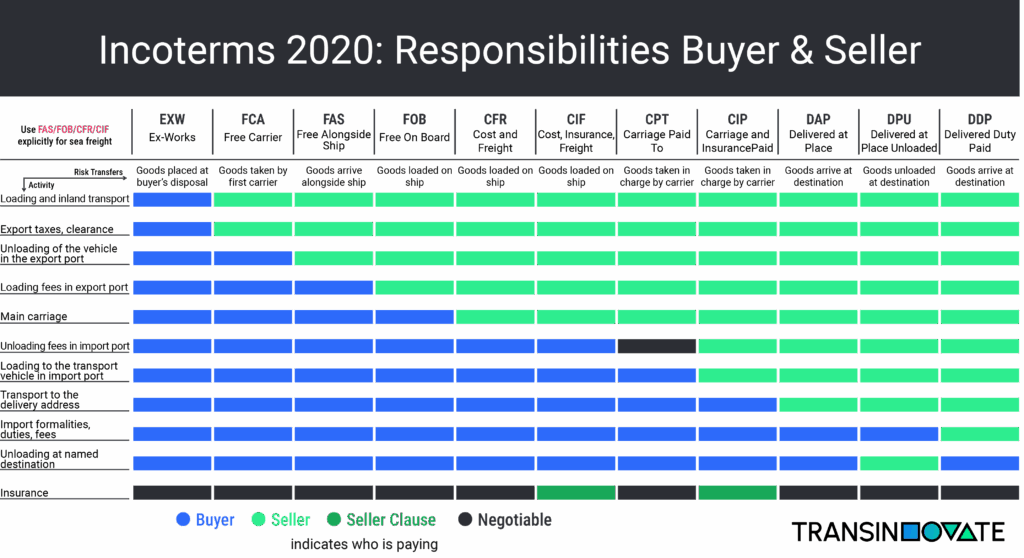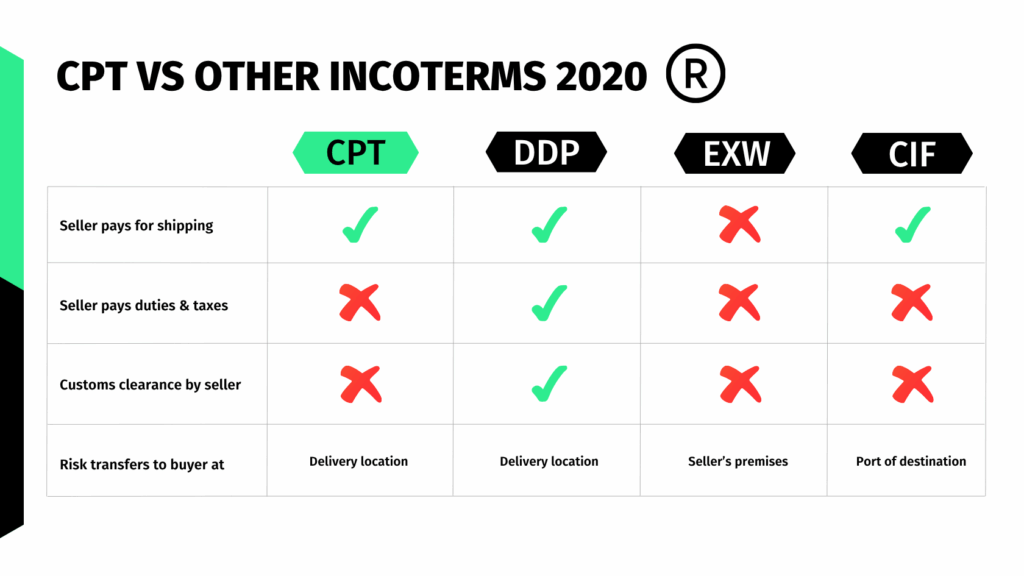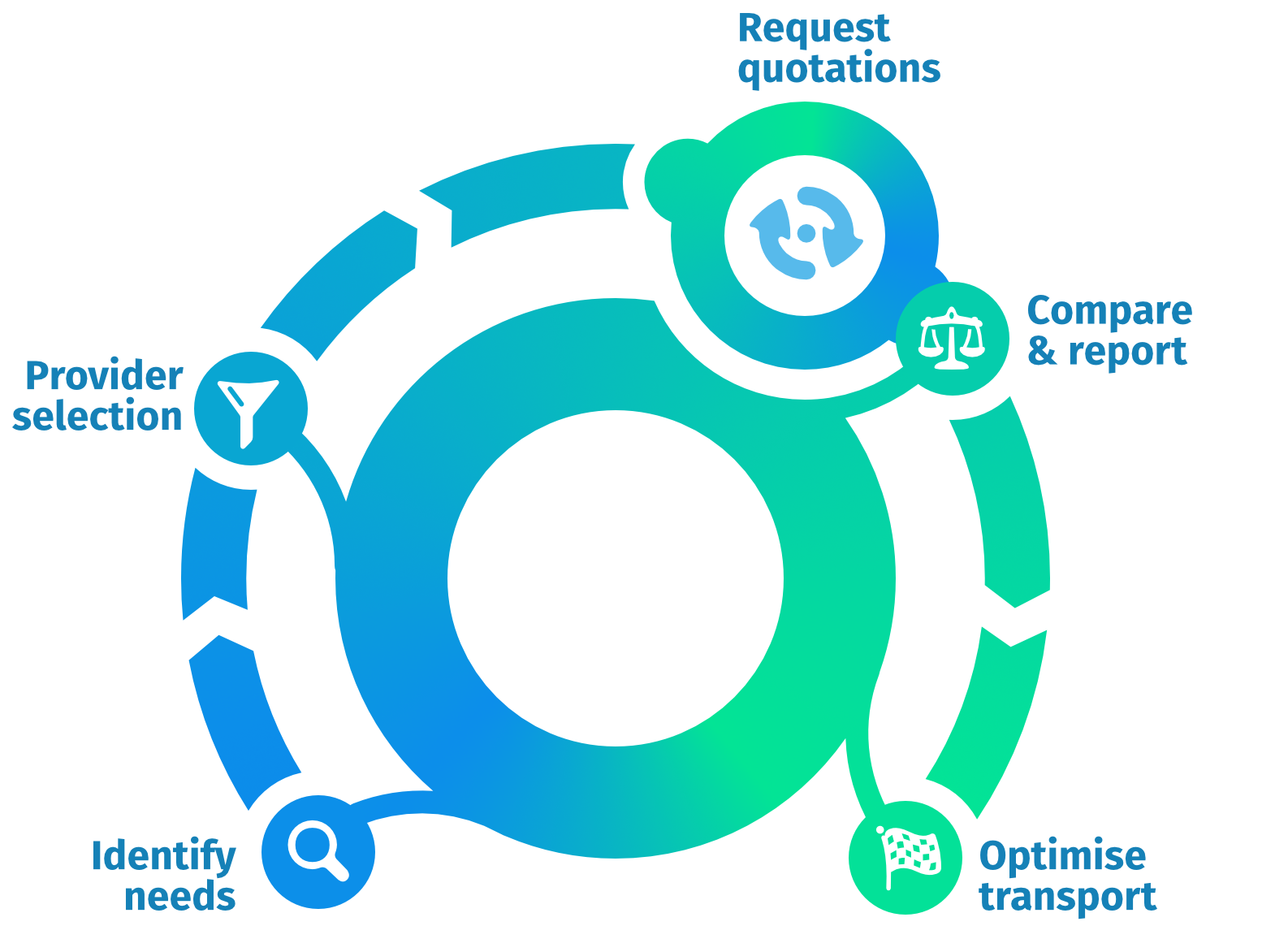CPT Incoterm (Carriage Paid To)
Imagine this: you’re purchasing goods from a supplier overseas. They offer to handle the transportation to your country and even cover the shipping cost. Sounds convenient, right? But midway through the journey, the goods are damaged. Who is responsible?
This is where misunderstandings in international trade often begin — and where the CPT Incoterm plays a crucial role.
Why Knowing the Terms Matters
In international shipping, agreeing on price and delivery date is just the beginning. The real complexity lies in defining who is responsible for what — and when that responsibility transfers from seller to buyer.
CPT is one of the Incoterms® rules designed by the International Chamber of Commerce (ICC) to make this clear. However, it often gets misinterpreted due to a subtle but critical distinction between cost and risk.
What CPT Incoterm Means
The CPT Incoterm (Carriage Paid To) means that the seller pays the freight costs to transport the goods to an agreed destination. However, the risk transfers to the buyer as soon as the goods are handed over to the carrier. This means the seller is responsible for transport, but not for any damage or loss during the journey. CPT is often used in multimodal transport.
For a full overview of Incoterms®, click here.

Key Advantages of CPT
1. Predictable transportation costs
Since the seller arranges and pays for the main freight, the buyer receives a clear, upfront transport price to the named destination.
2. Simplified logistics for the buyer
Buyers don’t need to negotiate with carriers or coordinate freight arrangements, which is especially useful if they lack experience in international logistics.
3. Versatility across transport modes
CPT works for any mode of transport, including multimodal shipments, making it a flexible choice for global supply chains.
Potential Drawbacks of CPT
1. Early transfer of risk
The buyer assumes responsibility for the goods much earlier than they might expect — at the moment the goods are handed to the carrier, not when they arrive.
2. Uncovered destination charges
The buyer may be responsible for import duties, unloading costs, or local transport fees not covered by the seller’s responsibility.
3. Unclear expectations
Unless both parties are experienced and aligned, CPT can lead to disputes about who handles what. It’s essential to document every step clearly.
Example: How CPT Works in Practice
A company in Spain sells industrial equipment to a buyer in Belgium. Under CPT terms, the Spanish seller arranges and pays for transportation to Brussels. However, once the goods are handed to the logistics provider in Madrid, the buyer becomes responsible for any damage or loss during transit.
When the shipment arrives in Brussels, any customs clearance, unloading, or local delivery costs are also the buyer’s responsibility.
Is CPT the Right Choice for Your Business?
CPT provides a clear structure for cost-sharing, with the seller taking on transport coordination and payment. However, the buyer must be prepared to manage risk from the point of dispatch and take on any additional costs at the destination.
It’s a suitable Incoterm when:
-
The buyer has experience with local customs and final-mile logistics
-
There’s a need for simplified and cost-transparent shipping
-
Both parties want to avoid the complexity of full-service terms like DDP

Simplify CPT Shipments with Our TMS Platform
Managing multiple carriers, delivery schedules, and cost responsibilities under CPT can become overwhelming — especially if you’re handling high shipping volumes.
Our Transport Management System (TMS) helps you stay in control.
With our platform, you can:
-
Compare shipping rates and lead times across all carriers
-
Monitor the status of every shipment in one centralized dashboard
-
Handle spot rate requests and dock scheduling
-
Communicate directly with logistics partners
-
Track all transport costs and savings opportunities
There’s no need for ERP integration, and setup is fast.
Start your free 90-day trial and experience how our TMS simplifies your entire shipping operation — from order to delivery.
Not Sure Which Incoterm Fits Your Business?
Whether you’re exporting regularly or handling a few imports a year, choosing the right Incoterm is critical to managing risk and cost.
Contact our team to discuss which rule aligns best with your logistics strategy and how our platform can support it.




